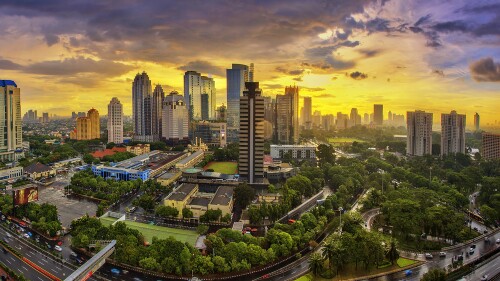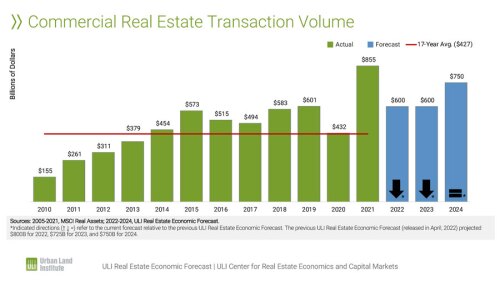Northern Italy, one of the hardest-hit areas during the early days of the COVID-19 pandemic, is poised to come out of the pandemic far stronger, with a greater emphasis on green space and social cohesion, said Pierfrancesco Maran, deputy mayor for urban planning, green areas, and agriculture of the municipality of Milan, speaking at the 2021 ULI Virtual Europe Conference.
“Milan was one of the regions that was hardest hit by the pandemic early on,” said Chris Choa, executive director of urban strategy firm Outcomist. “It was a European gateway, very internationalized, and we saw on one hand the hardship and suffering, but in turn it became in some ways a symbol of a kind of spirit of how you can adapt to adversity and accelerate initiatives that were already in place.”
Pierfrancesco Maran, Municipality of Milan, joins us for a one-on-one interview with Chris Choa, Outcomist, to discuss #Milan’s leadership in times of change.@PierMaran shares his insight on #Expo and other #regeneration projects in #Milan.#ULIEuropeConf pic.twitter.com/7wQMGATaIn— ULI Europe (@ULIEurope) February 9, 2021
“It was a hard year for everybody, but for us it was stranger than the others because we were the first to experiment with a lockdown,” explained Maran. “We were probably the first to reopen also. In response to the pandemic forcing people to be outside more, we wanted to push citizens to react [to the new reality], so we created new pedestrian areas, new cycling areas, we asked restaurants and bars to enlarge their space outside. When you’re in crisis, you have to do something new; you don’t have to wait until the crisis is over.”
Maran explained that Milan is still forging ahead with the 2026 Winter Olympics. The pandemic has given them ideas to explore that they had not thought about before in terms of re-creating the city and the Olympic Village. About five years ago, he said, Milan rediscovered the idea of their public space.“We realized our city was beautiful, but it was a wonderful place for shopping, night and social lives. Rediscovering the public space was a great find for our city. For Milan, we started to grow up in 2015 and we stopped in 2020 when there was a pandemic. We have to be ready for the Olympic Games and we are full of investments that will be.”
Just because a government changes, Maran said, doesn’t mean that projects have to be restarted because of a new administration. “There is the idea where, when you change city government, you have to start from zero. We don’t think that works, because city projects, planning, need years to move from a project to a realization. So there’s no reason to stop something. You can adapt a project to different goals.” In Milan, he continued, they are more interested in results. “We are more interested in social results. We have to work on the environment [such as climate change and green space].”
To make this happen, “First, you have to create conditions to invest, then you have to redistribute the results to all citizens. We need more social housing than before. We need the citizens of Milan to be part of the success of the city. We need more moral and social attention and more environmental protection than we had before.”
So what does success mean? Ten years down the line, looking back, how would Maran define a changed city for the better? “I think the pandemic changed even the priorities of citizens. I think that, before the pandemic, we were just approaching the idea that a citizen chooses to live in Milan because of jobs. Jobs will be central in the life of everybody, but in addition to that, we want to improve people’s quality of life, add more green space, extend social services. I think this is the future of cities. Before the pandemic, you had to stay in the cities because it was the best place to work. Now, if cities want to be the best place to work, they have to be the best place to live.”
“It’s really about attracting the right kind of people to drive the city forward, and making people attract other people, which is really the formula for success in all cities,” Choa agreed. “Milan has exemplified a new kind of urban spirit, an Olympic spirit, a spirit that can take on real challenges and move forward.”
The full session is available to view for registrants to the 2021 ULI Virtual Europe Conference. Alternatively, you can still register for the conference in order to view all sessions.


